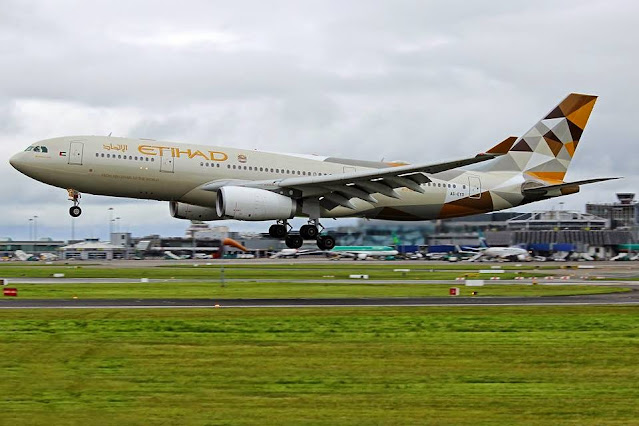Air Serbia is expected to lease two Airbus A330-200 aircraft formerly operated by Etihad Airways as part of its wide-body fleet expansion this year. As EX-YU Aviation News learns, the aircraft have not been in service for some time and are currently stored. As previously noted by Serbia’s Finance Minister, the first frame is expected to arrive in Belgrade in July and the second in September, after they undergo maintenance and repainting. The airline plans to launch operations to Shanghai and Guangzhou upon the arrival of the wide-body jets, complementing the two A330-200s it already has in its fleet.
The Serbian carrier’s two A330-200s operate with different configurations, with one having the ability to seat 257 passengers (21 business, 236 economy) and the other 268 travellers (18 business, 250 economy). The majority of Etihad’s former A330-200s have the capacity to seat 262 passengers, with 22 seats in business class and 240 in economy, although seating may vary depending on subsequent carriers the aircraft were leased to, including Alitalia and Air Seychelles. Etihad retired the A330-200 jets from its fleet in late 2019 after operating 31 aircraft of the type. The majority have since been sold to leasing companies, with many stored in Spain.
Late last year, Air Serbia’s CEO, Jiri Marek, said, “During this past summer, we secured traffic rights to Guangzhou and Shanghai in China. Regarding China, ideally, we would start each destination with two weekly flights. However, this depends on many factors, and since we are committed to our Chinese development, we might start gradually. The remaining aircraft capacity most likely will be added to New York JFK, growing beyond daily flights. That would mean that for some days of the week, we will introduce a second daily rotation to JFK. It depends on many factors, for example, the availability of slots and terminal space, which is an issue that is becoming more and more serious, especially at JFK”, Mr Marek explained. He added, “Having the four A330s in the fleet will enable us to plan spare capacity to overcome any unscheduled maintenance or spare parts issues as the market will continue to be volatile for several years ahead”.




